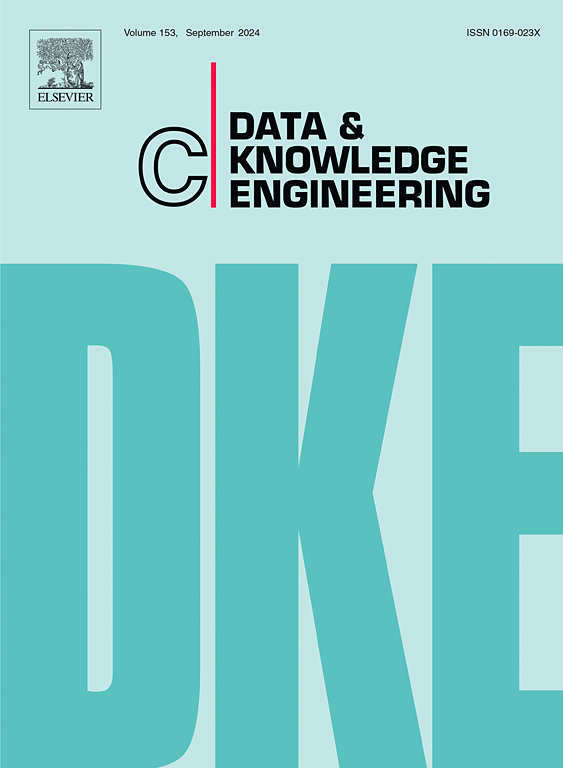VarClaMM:了解 DNA 变异分类的参考元模型
IF 2.7
3区 计算机科学
Q3 COMPUTER SCIENCE, ARTIFICIAL INTELLIGENCE
引用次数: 0
摘要
确定 DNA 变异在患者健康状况中的重要性(这是一个复杂的过程,被称为变异分类)对于精准医疗的应用至关重要。然而,对于如何结合和权衡现有的各种证据以得出正确一致的结论,目前仍存在争议。事实上,目前科学界有 200 多份不同的变异体分类指南,旨在建立一个规范分类过程的框架。然而,这些指南在本质上是定性和模糊的,妨碍了它们的实际应用和潜在的自动化。在这项工作中,我们讨论了我们为创建 VarClaMM 所做的努力,VarClaMM 是一个 UML 元模型,旨在为变异体分类所涉及的关键概念提供清晰的规范,作为该过程的通用框架。通过对这一领域的准确描述,我们能够发现可能对分类结果产生影响的矛盾或不一致之处。VarClaMM 的概念化工作将为变体分类的操作化奠定基础,使任何潜在的自动化都能建立在精确定义的基础上。本文章由计算机程序翻译,如有差异,请以英文原文为准。
VarClaMM: A reference meta-model to understand DNA variant classification
Determining the significance of a DNA variant in patients’ health status – a complex process known as variant classification – is highly critical for precision medicine applications. However, there is still debate on how to combine and weigh diverse available evidence to achieve proper and consistent conclusions. Indeed, currently, there are more than 200 different variant classification guidelines available to the scientific community, aiming to establish a framework for standardizing the classification process. Yet, these guidelines are qualitative and vague by nature, hindering their practical application and potential automation. Consequently, more precise definitions are needed.
In this work, we discuss our efforts to create VarClaMM, a UML meta-model that aims to provide a clear specification of the key concepts involved in variant classification, serving as a common framework for the process. Through this accurate characterization of the domain, we were able to find contradictions or inconsistencies that might have an effect on the classification results. VarClaMM’s conceptualization efforts will lay the ground for the operationalization of variant classification, enabling any potential automation to be based on precise definitions.
求助全文
通过发布文献求助,成功后即可免费获取论文全文。
去求助
来源期刊

Data & Knowledge Engineering
工程技术-计算机:人工智能
CiteScore
5.00
自引率
0.00%
发文量
66
审稿时长
6 months
期刊介绍:
Data & Knowledge Engineering (DKE) stimulates the exchange of ideas and interaction between these two related fields of interest. DKE reaches a world-wide audience of researchers, designers, managers and users. The major aim of the journal is to identify, investigate and analyze the underlying principles in the design and effective use of these systems.
 求助内容:
求助内容: 应助结果提醒方式:
应助结果提醒方式:


